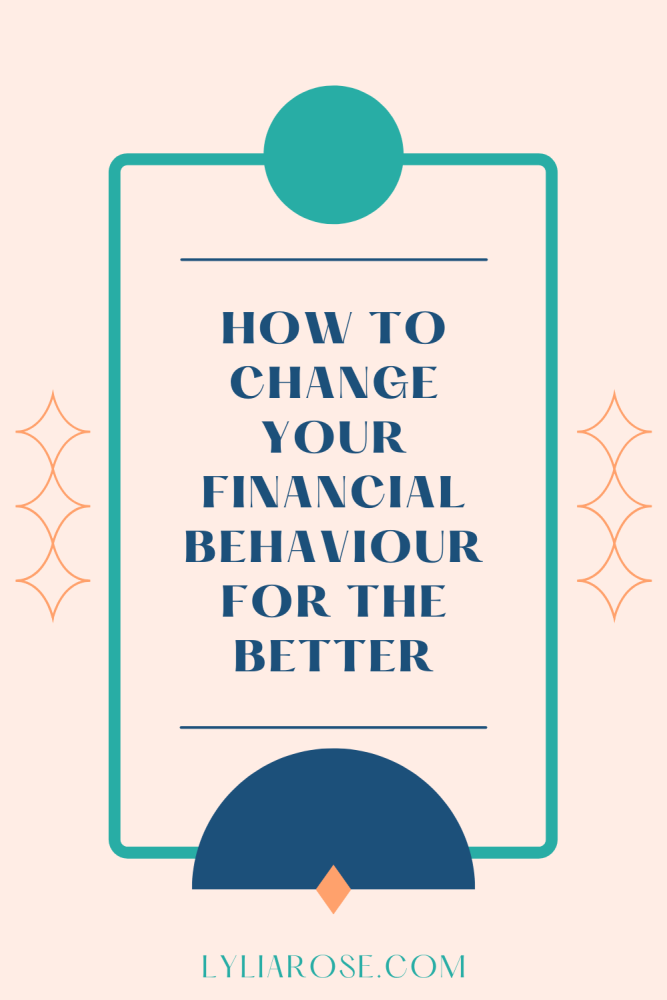How to change your financial behaviour for the better
Posted on
Financial behaviour is usually developed from a young age. From pocket money to our first jobs and careers, we gradually form our own unique relationship with money and how we spend it. Typically, one of two broad categories emerge, Spenders and Savers, and we all fall somewhere along that spectrum.
Being a spender carries short-term benefits, while savers typically enjoy longer-term benefits in exchange for sacrificing temporary gain. Either way, the goal of being financially healthy is to live within your means and spend in a way that allows you to build on your goals for the future, whether that be immediate or further away.
How can you spend what you earn every month, buy what you need, and save for the future - without feeling deprived or broke?

Trimming the fat
This article aims to show you that treating yourself every now and then is actually a great approach to life. However, stats like this can hint at that balance faltering for many on a regular basis. In the US, for example, 54% of people are living from month to month, and over 40% of those earn over $100,000 a year.
Budgeting is the key to breaking the unhealthy cycle of short-term debt that many people get trapped in, and a great place to start is by looking at your fixed costs. They’re often the largest of your monthly outgoings like rent, mortgage repayments, energy and insurance, and they’re assumed to be non-negotiable. However, that's not necessarily the case.
Take mortgages as an example, a mortgage is an agreement, but that agreement can always be altered once you’ve established a consistent habit of repaying on time. Speaking to a mortgage broker or researching on a mortgage advice platform like Trussle can make that negotiation significantly easier and help you calculate exactly what you can afford. Trying to argue your case directly with lenders and providers of any of your fixed costs can be intimidating and doesn’t clearly offer you alternatives or savings.
Our advice? Scrutinise your fixed bills as much as possible. See if you can free up potentially hundreds of pounds per month. Suddenly, those short-term debts shrink, and your lifestyle begins to balance out.
Start small
This is more of a perspective change than practical action. Giving each pound a role in your account is sort of like a more intense form of budgeting. Much of the time, we budget at the beginning of the month and try to stick to it. This might mean the occasional splurge followed by a week of austere spending. To assign roles to your money, you’ll need to open a few accounts and be ready to take hits early on in the month.
As payday rolls around, you want to immediately set aside or pay (if you can) outstanding bills like rent or credit card debt instantly. Then drop pots of cash into pots assigned to things like groceries or socialising. It’s a common mistake to see money in our accounts and spend randomly as long as money exists in the account.
Giving each pound a job helps you to stick to a budget by separating your outgoings.
Understand yourself
The final piece of advice is more of an introspective one. Understanding your relationship with money means monitoring your spending habits from an outside perspective. Try and note times of day, emotional states, places you go, or people you’re with when you’re spending in ways that aren’t working. Then, the hard part: Do something about it.
A very common one is spending time with friends, and getting comfortable with either turning down some plans or suggesting more cost-effective options can be a great learning experience and kinder on your wallet. Your friends will probably thank you for suggesting it!
It can be somewhat counter-productive in many articles that simply proclaim saving is the constant goal and spending regularly in any context is intrinsically unhealthy financial behaviour. After all, spending £2000 on an exercise bike might seem excessive, but you’re likely to enjoy many health benefits and it can work out more cost-effective than joining a gym, providing you use it regularly. Equally, spending a little extra on a coffee on your way to work is technically an unnecessary expense, but the enjoyment you receive can fuel a better morning’s work.
Spenders and Savers, in reality, are one and the same, we’re all just people trying to lead a better and happier life!
Want to make more money from home, online or need a side hustle?
Find loads of ways to make money at home on my blog, as well as my favourite side hustle in my matched betting blog!
Looking for more ways to save money?
Check out my massive money-saving tips section and find some great deals on my voucher codes and free money pages!
Want to manage your finances better?
Here are loads of family finance tips and helpful debt articles.

